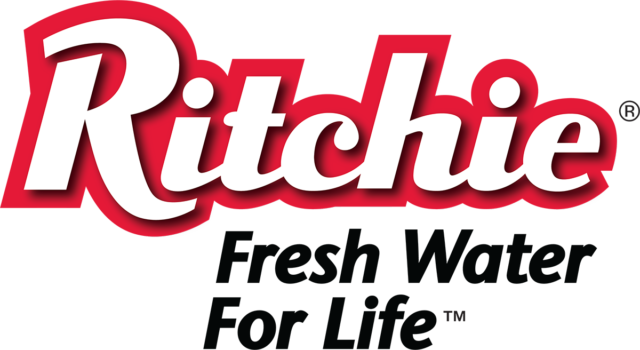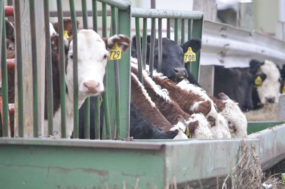It wasn’t really the best of situations. My wife had volunteered to drive her Arizona snowbird parents from our place in southern Idaho back to their home in the far-northern extreme of the Idaho Panhandle, a tedious 10-hour drive under ideal conditions made even more taxing and time-consuming by the demands and requirements of her octogenarian passengers.
I wasn’t as worried about her ability to handle the rigors of the journey as I was about my ability to tend to the farm and mind the flock in her weeklong absence.
The farm to which I refer is her precious and somewhat impressive garden, complete with the recently completed greenhouse which added considerably to both the production and labor requirements of an already demanding little farmstead. The flock in question is the eight or nine laying hens in the corner coop under the elm tree and the half-dozen pullets over in the parlor of the old milk barn at the far end of what is now our working corrals.
It was the middle of summer and, though she tried to pretend I had her full confidence, my situation was not unlike that of the short, scrawny freshman who makes the team because only a dozen kids showed up for the first football practice and they don’t make cuts anyway.
I suggested she write down a day-by-day description of my expected duties – but she, in an obvious vote of no confidence in either my ability to read or keep track of the list, opted instead to call me early each morning to walk me through my daily assigned gardening chores.
Three days into the deal, I was gaining confidence. Despite the high 90-degree temperatures that accompanied the wicked drought we were enduring, everything in our little Garden of Eden was mostly green and watered-up. Without instruction, I even managed to keep the flowers on and around the front porch watered. (The blue mineral tub, filled with water, stationed right outside the front door acted as a pretty good reminder, but still I did it without her specific orders.) The hens weren’t a big deal since the confounded rooster was fairly consistent with his daily 4 a.m. reminders.
The early morning hours of day four is when the dreaded dagger of panic pierced my confidently cheerful heart. As I stepped out the front door, the glimmer of the security light reflecting off the tin roof of the old milk barn seemed to burn a hole in my retina. The pullets, the replacement heifers of the chicken herd, were in that barn – at least I assumed they were there. I hadn’t taken a peek at them since I fixed the latch on the door two weeks earlier. I grabbed a 5-gallon bucket from the porch and rushed to the 50-gallon water trough in the leppy pen.
Barely stopping, and with one impressive motion, I dipped the bucket in the trough and hefted the full bucket out, losing only a cup or two of water as I sprinted across the corral to the barn, all the while imagining the grisly sight that most likely awaited me behind the door of the old, retired milking parlor. I tried to ease my guilty conscience by reminding myself these were merely chickens, critters that didn’t necessarily occupy the upper echelon of high-ranking livestock citizenry in my book.
As I burst through the door with my cargo of life-giving liquid, I was greeted, not by a scene of gruesome poultry suffering but by six stupid-looking chickens staring up at me with that stupidly obnoxious, yet somehow endearing gaze only a domestic chicken can pull off.
“And just what are you doing here?” they seemed to ask.
I, in a transparent attempt to cover my tracks and assuage my guilt, actually vocally answered their query. “Oh, hey. I’m just checking on the old H2O and feed situation. I see you’re fine, so I’ll just top you off and be on my way.”
Yes, it’s true. I was so relieved to find a room full of live fowl, I literally talked to chickens. At least I now understood why my wife hadn’t included the chicken duties in her daily instructions. In her mostly accurate assessment of my chore-handling deficiencies, she’d filled a couple of rubber feed pans with water and feed and had even left some water-filled milk jugs by the door in the unlikely event I might stumble across them on my way to check the cluckers.
I’d dodged a pullet bullet – and unless she reads this, my wife will never know. My careless foolishness need not be underappreciated, however. I garnered a whimsical little piece of wisdom from the whole affair. In the aftermath, I couldn’t help but scoff at my ridiculous actions of the morning. While my would-be heroic efforts as I leapt fences and ran across a barnyard, all while toting a 40-pound bucket of water, were no doubt athletically impressive to the two orphaned calves and the crippled cow who witnessed the event, it was an endeavor in absurdity.
If the hapless chickens had somehow miraculously survived several hot, summer days without water, the 12 seconds I gained by awkwardly sprinting to their aid would have made absolutely no difference to their well-being or potential demise. The difference was made several days prior to my feat. True life-giving and life-affirming actions are better accomplished through steady living and long-term preparing for the calamities and celebrations that randomly or systematically litter life’s path. It’s best to pray for July’s rain in January and plan as though it will never fall.








